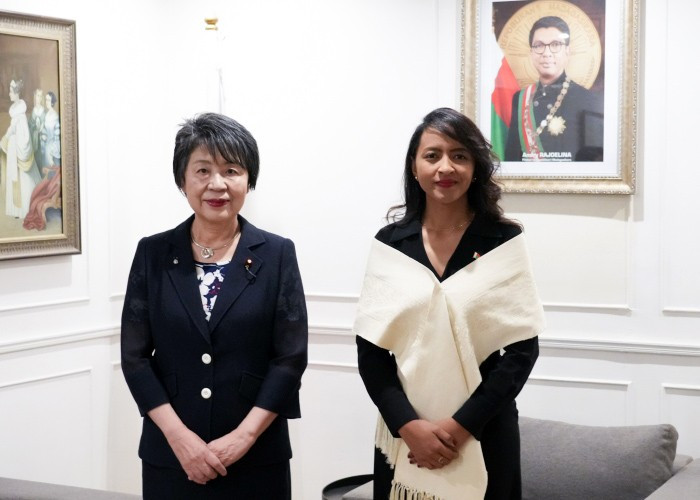Lasting from April 26 to May 5, the visit of Japanese Foreign Minister Yoko Kamikawa to a series of countries, including Madagascar, Côte d'Ivoire, Nigeria, France, Sri Lanka, and Nepal, is her first visit to sub-Saharan Africa and two South Asian countries. This is also the first time a Japanese Foreign Minister has visited the island nation of Madagascar since the country gained independence in 1960.
The visit is said to be aimed at strengthening economic relations with Africa, as well as laying the foundation for the Tokyo International Conference on African Development (TICAD) Ministerial Meeting that Japan will host next August.
According to Kamikawa, to effectively support Japanese corporations, the Japanese Ministry of Foreign Affairs recently announced the establishment of a new position: “official in charge of cross-border economic affairs.”
At the outset, the pilot diplomatic missions have been established in five countries, including the Embassy of Japan in South Africa, the Consulate-General of Japan in Dubai, the Embassy of Japan in the UK, the Embassy of Japan in India, the Embassy of Japan in Turkey, and the Consulate-General of Japan in Istanbul.
During this long visit, Minister Kamikawa has had meetings and dialogues to listen to the needs and views of local Japanese corporations and also receive wide-ranging feedback from the business community and others, and ensure that their comments are taken into account in the future developments.
As this year marks the 60th anniversary of Japan’s accession to the Organisation for Economic Co-operation and Development (OECD), during her stay in France from May 2 to 3, she will attend and facilitate the OECD Ministerial Council Meeting chaired by Japan.
She will also attend a WTO informal ministerial meeting hosted by Australia, and hold a Japan-EU High-level Economic Dialogue together with the EU.
Kamikawa emphasised that in the current international situation with deepening division and confrontation, Japan needs to strengthen collaboration and establish partnerships with developing and emerging countries, which are taking on a significant presence in the world, while building strategic trust with African and South Asian countries for development and prosperity together, realising the “Free and Open Indo-Pacific” (FOIP) strategies.
Japan also wants to send a strong message on the importance of strengthening cooperation and coordination among countries to address global issues, including the rule of law and Women, Peace and Security (WPS).
Tokyo's determination to strengthen relations with Africa was demonstrated through the week-long trip of Japanese Prime Minister Kishida Fumio to Egypt, Ghana, Kenya, and Mozambique in April 2023.
This was Kishida's first visit to Africa since taking office as Prime Minister of Japan in October 2021.
The Japan’s Diplomatic Blue Book, published in March 2023, for the first time included the description of the “Global South”, which refers to developing and emerging countries located primarily in the southern hemisphere, such as in Central-South America, Africa, South Asia, and Southeast Asia.
The document states that it is important to cooperate with emerging and developing countries in a comprehensive manner to overcome differences in values and interests in multilateralism.
In addition, according to experts, with diverse natural resources, abundant human resources and economic development potential, Southern Hemisphere countries play a very important role in helping the G7 countries to overcome current crises such as rising energy and food prices and supply chain disruptions.
Over the past 10 years, Japan's foreign direct investment in Africa decreased significantly, down to 6.1 billion USD in 2021, less than half the figure in 2013. Realising this fact, Japan is trying to strengthen cooperation with the Southern Hemisphere, including African countries, to increase its influence and position in this region.
















